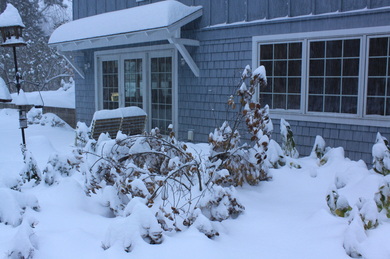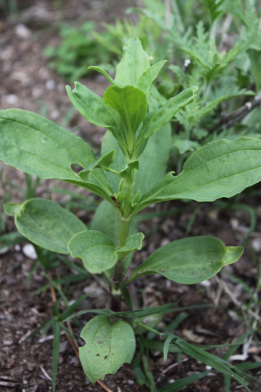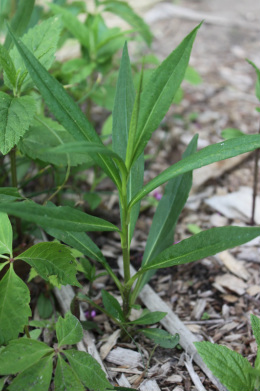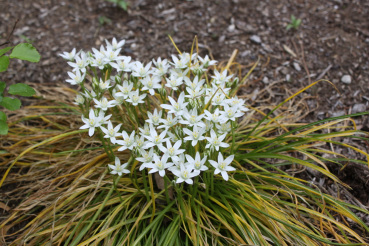|
First the positive: 1. Plants LOVE a good snow mulch 2. Cold weather weeds like bittercress aren't germinating 3. No frost heaving of perennials 4. Plenty of moisture in the soil come spring time 5. Potentially less bugs this coming spring- maybe even a reduction of really bad ones like Emerald Ash Borer  An early season snowstorm brought this Kousa to it's knees An early season snowstorm brought this Kousa to it's knees Now for the negatives: 1. There's going to be a lot of broken limbs this spring. Snow plow damage, ice and snow accumulation, strong winds, etc. are doing a number on the woody shrubs, ornamental trees and evergreens this year. If you're going to take it on yourself, start with sharp pruners and saws, and make clean cuts in the correct location. Don't just remove the broken branch at the snap, consider the future growth pattern of the plant as well as proper location for the wounded bark to seal itself. 2. Animal damage. Those cute little creatures that you love to watch have been hungry this winter. Very, very hungry and as such have been helping themselves to plants that they don't usually eat. If you have a rabbit population, you'll find that some of your shrubs will be missing all their bark at the snow line. If you have deer, well...I'm sorry. The regular winter forage of animals (in a typical snow fall year) consists of dried grasses and small, tender buds and branches. This has all been under snow cover since early December, so they have been eating what they can reach- the bark and buds of your favorite shrubs and small trees. And in regards to the not so cute creatures? The voles, mice and other rodents have been busy tunneling under all that snow and creating havoc in their own special ways. 3. Winter burn. Evergreens in particular are susceptible to winter burn, as they continue to photosynthesis all winter. This may show up on the side of the plant exposed to wind or sun first, but often the whole tree is effected. When the ground freezes solid, or the frost line goes too deep, moisture is no longer available to replace that which is lost by the needles during transpiration. The needles will turn brown, or in the case of broadleaved evergreens like Rhododendrons, the terminal buds will abort. There are ways to prevent this, including treating newly planted evergreens with anti-desiccant before winter sets in, selecting varieties that aren't as susceptible, installing screens or wraps, and carefully plant placement. 4. Snow mold. Yuck! Your lawn looks terrible this spring- what happened to all that lush green grass you were looking forward to mowing? Snow mold most often occurs during winter conditions like this one- the first snow falls on unfrozen turf, and then the snow cover persists for three months or more. Sigh. 5. Cold blasted buds. Many of the plants we grow here are marginally hardy. Magnolia, redbud, dogwood, azalea, fruit trees such as cherry, peach and plum can all be nipped in the bud, so to say, by a long period of record low temperatures. Will it kill the trees? Probably not, but it will definitely damage the new buds. These plants all do well here, buffered by the lake effect we enjoy from Lake Michigan. We may not see flowers this year and possibly have lots of dead spots on the tips of the branches. New growth may come from latent buds, rather than the usual ends of the branches. Wait until new growth has started pushing before you do any pruning to remove the dead spots. Concerned about what your landscape is going to look like come spring? Give us a ring or email, we'll help talk you through it! Well, we're back at it with spring clean ups. This is a great time to get out there and uncover your garden. Pull or cut off the dead foliage, rake away the leaves and cut down your ornamental grasses. A few more weeds* that you may want to take the time to pull now: Dont' forget to take the time to stretch your back every now and then!
*I realize that all three of these weeds are also considered wildflowers, and as such, there is an appropriate place for them. However, left unchecked, they will quickly take over a cultivated perennial garden or landscape bed due to their abundant seed production and aggressive root systems. |
BIO:Anna and her husband Todd own Arcadia Gardens, LLC a Stevensville, MI based landscape design and build company. Her degree in Horticulture with a focus on landscape management from Michigan State University allows Anna to select plants specific to on-site conditions and with maintenance requirements that suit the client's needs. She is comfortable designing across a range of styles- from contemporary to classic- and makes a point to include the client's input throughout the design process. She is an active member of the Association of Professional Landscape Designers and is serving as 2014 President of the APLD-Michigan Chapter. Anna has recently contributed to media such as "The Designer" and Gardendesign.com and is qualified to speak on a variety of topics from landscape design and maintenance to addressing local garden clubs and organizations. Contact Us: |


